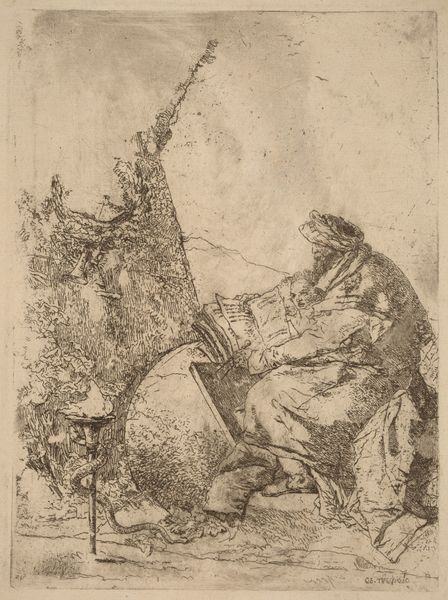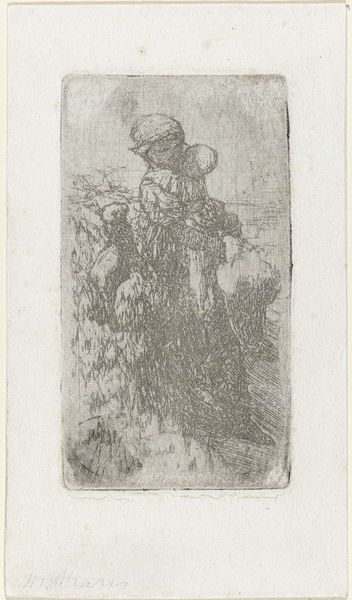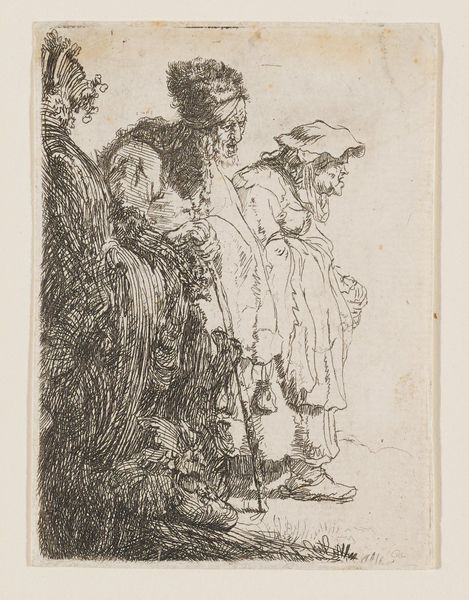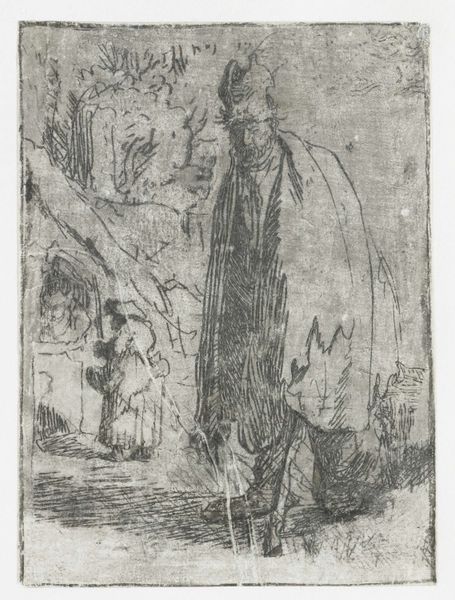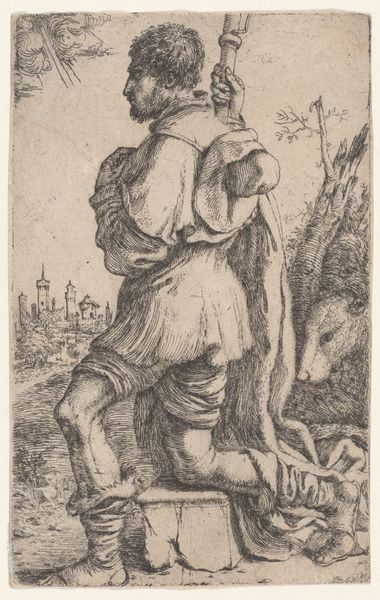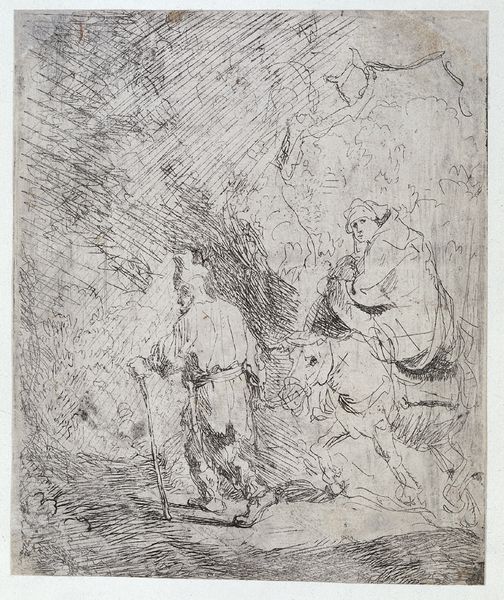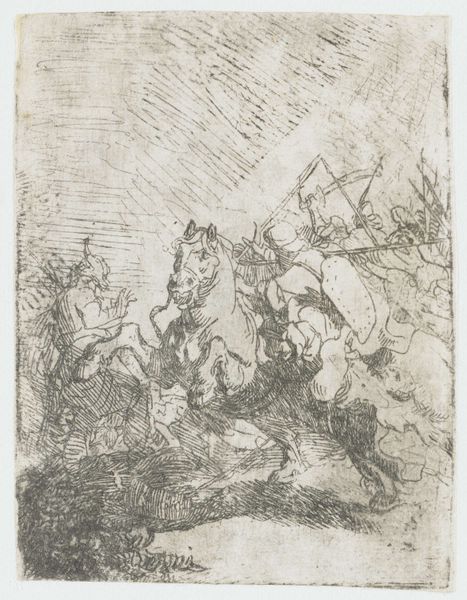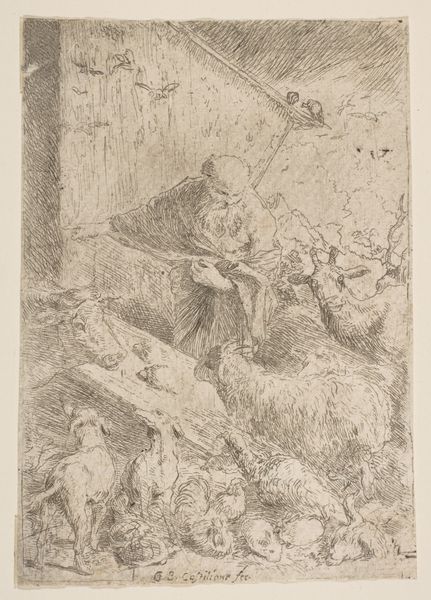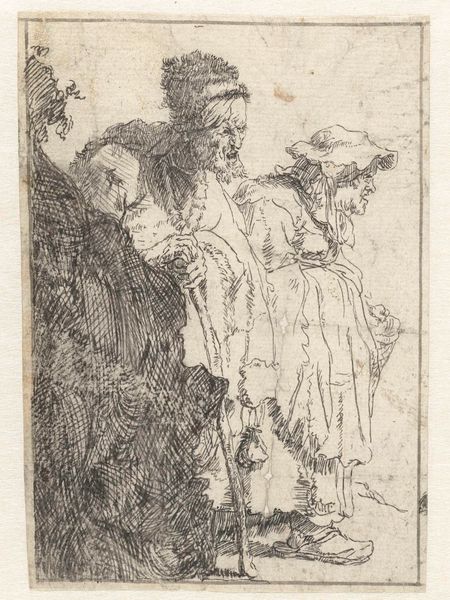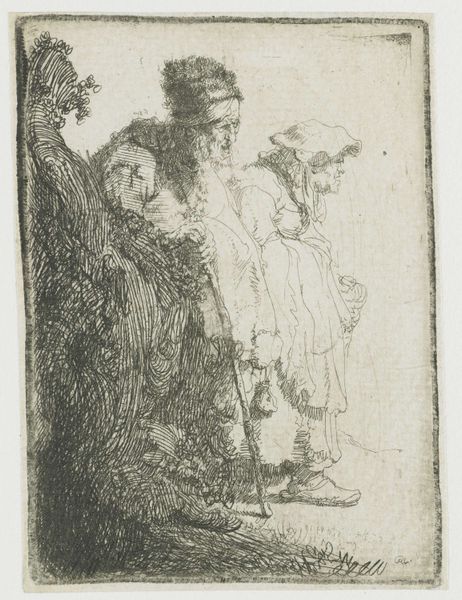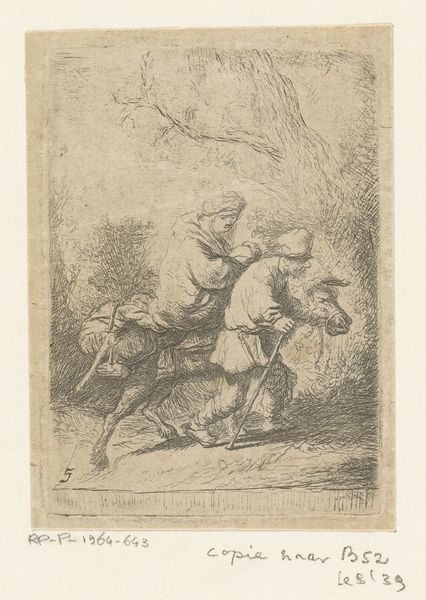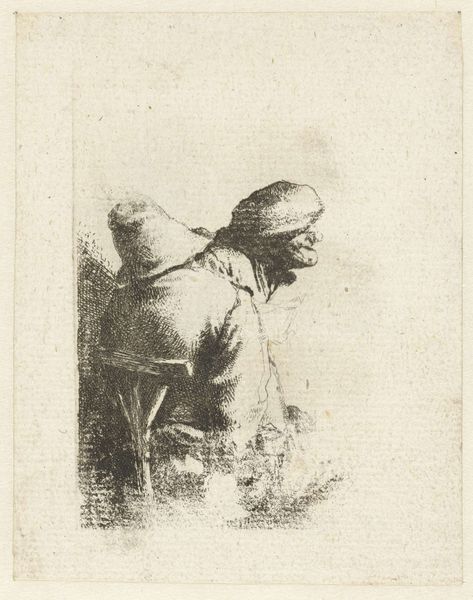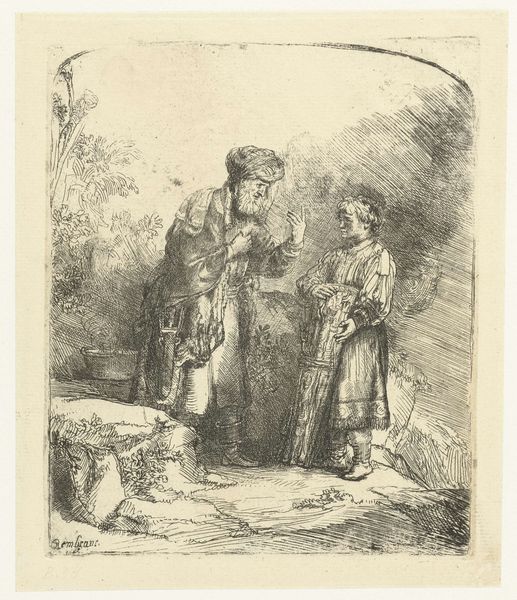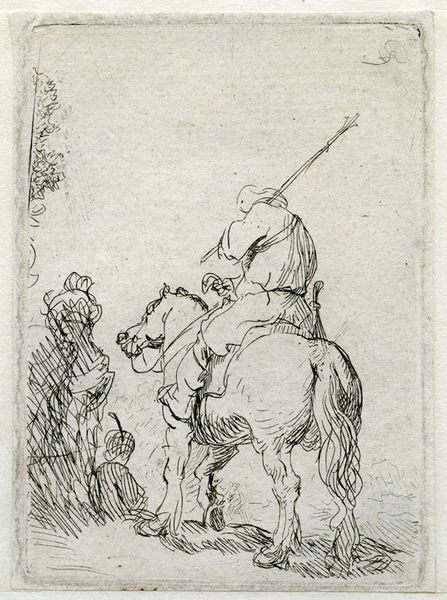
drawing, print, etching
#
portrait
#
drawing
#
baroque
# print
#
etching
#
pencil sketch
#
charcoal drawing
#
figuration
#
underpainting
#
sketch
#
genre-painting
Copyright: Public domain
Rembrandt van Rijn created this etching, "Beggar man and woman," during the Dutch Golden Age. Here, Rembrandt engages with a subject that was common in the 17th century: poverty. The Dutch Republic saw massive economic growth and wealth. Yet, this affluence was not shared equally, and a large underclass lived in precarious conditions. What makes this image interesting is its ambiguity. Are we meant to feel sympathy, disgust, or something else entirely? Is Rembrandt merely depicting reality, or is he making a subtle commentary on social inequality? His choice of etching, a printmaking technique, makes the image reproducible and widely accessible, suggesting that the artist intended for this artwork to reach a broad audience. Understanding the economic structures and social attitudes of the Dutch Golden Age is essential to unraveling the complex meanings embedded within this seemingly simple image. Scholarly articles and historical documents can provide insight into the lives of the poor, the prevailing social norms, and the artistic conventions of the time.
Comments
No comments
Be the first to comment and join the conversation on the ultimate creative platform.
